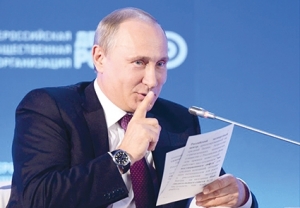Beefing Up Security
Georgian Prime Minister Mamuka Bakhtadze stated on October 1 that Georgian air space will become more secure and protected through the combined efforts of the Georgian government and the United States. The PM made the statement at the Alekseevka aviation base on the outskirts of Tbilisi when viewing the new equipment Georgia had received from French Thales LAS SAS and MBDA companies.
On 15 June 2015, the Georgian Ministry of Defense concluded contracts with France for an amount exceeding 300 million GEL (about $115 million) for the purchase of air defense systems. The first contract is with ThalesRaytheonSystems (TRS, a joint venture between the American company Raytheon and the French group Thales) which provided a mobile ground-based warning radar for detecting and monitoring air targets, and two mobile radars for mid-range detection of air targets, as well as Thales mobile air defense command posts.
The second contract was for the supply of MBDA Mistral ATLAS anti-aircraft missile systems, a short-range air defense weapon system normally operated by a gunner and a crew commander, though if the mission is carried out in a simple tactical environment, it can be operated by one single soldier. It boasts a 97% proven success rate and has higher reliability than any other existing low-level air defense missile.
The implementation of the contracts with Georgia was delayed for political and financial reasons and it was not until 2017 that the French leaders gave their agreement for its implementation. The French bank Societe Generale granted a loan to Georgia of about EUR 100 million (about $115 million) in order to finance the contracts. Authorization for the shipment was given in Paris early 2018.
Bakhtadze and Defense Ministry officials also viewed the helicopter fleet which is currently being renovated with the help of the US. Bakhtadze said that in addition to purchasing air defense weapons, Georgia is improving its air transport and logistics capabilities.
However, in these modern times, physical threats are not the only thing to worry about. Countering the use of propaganda and cyber security threats play a major role in securing a country.
On October 4, the United States released new evidence and indictments accusing Russian military spies of hacking anyone who investigates Moscow's involvement in an array of criminal activities. Russia denied the accusations and tried to sway attention towards the US, accusing them of running a biological weapons program involving toxic mosquitoes, ticks and more.
On Thursday, US authorities charged seven officers with hacking international agencies. The officers are accused by multiple authorities for a devastating 2017 cyber-attack on Ukraine, the email leaks that rocked the US 2016 election and other damaging hacks. It has also been reported that they allegedly tried to hack into the Organization for the Prohibition of Chemical Weapons, yet failed.
Russia accused the US of developing a chemical and biological weapons program along its borders on Thursday following the charges and accusations of hacking, in order to draw attention away.
General-Major Igor Kirillov, Commander of Russia’s radiological, chemical and biological defense troops, said Moscow based its conclusion on documents released by former Minister of Georgian State Security, Igor Giorgadze, making statements such as “could that really be for innocent medical research?” and “Russia will not allow the United States to carry out biological experiments near its borders.”
No question and answer session was offered and the press conference, which had been quickly drawn together at the moment Russia understood it would soon be announced that four of its citizens had been expelled from The Netherlands over an attempted cyber-attack on the OPCW.
A mixture of cyber-attacks and well-timed propaganda can shift things in a direction which might endanger the reputation of Georgia, simultaneously hurting NATO relations and EU relations; however, this time it did not work. Russia acted recklessly and desperately in order to cover their own tracks.
Georgia will have to beef up not just their physical defenses, but their cyber security as well. A key issue here is the energy business: with these companies being mainly private, their systems become prime targets for cyber-attacks, which could cripple not just Georgia but the whole of the EU. Hackers have caused losses of millions of dollars over Europe and even caused an explosion on the Baku-Tbilisi-Ceyhan oil pipeline in Turkey, due to cyber security not being up to standard.
Warfare has evolved beyond simply having the bigger stick, and with Georgia becoming a tech hub for crypto currency miners, some doors are bound to be opened that we do not necessarily want to leave unguarded.
By Shawn Wayne











